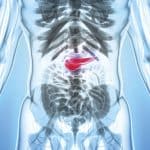In a new study, researchers from King’s College London (KCL) have revealed that tiny particles present in cows’ milk could offer a new and effective method for the oral delivery of ribonucleic acid (RNA) drugs.
Published in the Journal of Nanobiotechnology, the tiny particles known as extracellular vesicles (EV) could help protect and deliver RNA drugs following oral administration.
RNA therapies are a powerful class of drugs based on nucleic acids that offer a way to target previously untreatable diseases on a molecular level.
Despite successful administration via injection, there has been no successful way to deliver them orally, as the drugs are destroyed by the harsh conditions of the gut.
Researchers extracted EVs from cows’ milk and loaded them with RNA molecules to treat inflammatory bowel disease (IBD).
EVs are nanoscale transporters that carry biological molecules in a protective coat throughout the body, controlling and regulating the access of molecules into cells.
In advanced laboratory models of the human intestine, the team observed that the EVs were able to transport the therapeutic RNA molecules across the gut barrier.
Additionally, in animal studies, the RNA-loaded milk EV’s successfully reduced IBD-related inflammation, further demonstrating the method as a proof-of-concept success with RNA-based therapies for the first time.
Researchers believe that milk EVs could also be capable of delivering RNA payloads to the bloodstream, potentially offering oral administration of RNA therapies for a range of diseases, including heart disease, diabetes and vaccines against other viral infections.
Dr Driton Vllasaliu, senior lecturer in pharmaceuticals, school of cancer and pharmaceutical sciences, KCL, commented: “This study is significant as it suggests oral delivery of RNA drugs using technology based on milk EVs may be possible” and “could lead to the disruptive and sustainable manufacturing of affordable and accessible oral nucleic acid therapies for a plethora of diseases, leading to great societal impacts”.










